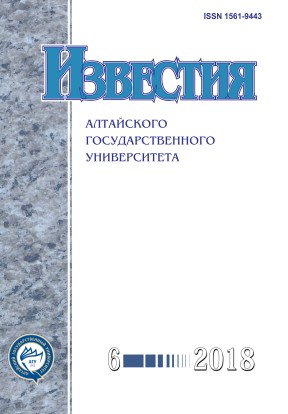Artificial Intelligence: Legal Aspects
Abstract
The article deals with the legal aspects of the use of artificial intelligence technology. The authors note a weak regulatory control of the use of artificial intelligence in Russia, taking into account the active and widespread introduction of this technology in various spheres of life. Developments in the field of artificial intelligence raise very serious ethical and legal issues. Among legal issues, such as the nature of artificial intelligence, the existence of a legal personality, the problem of liability for damage caused by artificial intelligence, the impact on the legal profession, etc., need to be addressed. Particular attention is paid to the need to develop a legal concept of artificial intelligence in order to build an effective model of legal regulation. Following the results of the study, the authors proposed the following features of artificial intelligence: the presence of a technical device or cyberphysical system; ability to receive, process and transfer information; ability to work autonomously; self-learning based on the analysis of information and experience; self-awareness; thinking and the ability to make independent decisions.
Downloads
Metrics
References
Келли К. Неизбежно. 12 технологических трендов, которые определяют наше будущее. — М., 2017.
Росс А. Индустрии будущего. — М., 2017.
Шваб К. Четвертая промышленная революция. — М., 2018.
РОБОПРАВО: Исследовательский центр проблем регулирования робототехники и искусственного интеллекта [Электронный ресурс]. — URL: http://robopravo.ru/.
Архипов В.В., Наумов В.Б. Искусственный интеллект и автономные устройства в контексте права: о разработке первого в России закона о робототехнике // Труды СПИИРАН. — 2017. — № 6.
Aletras N., Tsarapatsanis D., Preoţiuc-Pietro D., Lampos V. Predicting Judicial Decisions of the European Court of Human Rights: A Natural Language Processing Perspective, Peer J Computer Science [Электронный ресурс]. — URL: https://peerj.com/articles/cs-93/.
Морхат П.М. Искусственный интеллект. Правовой взгляд. — М.,2017.
Бостром Н. Искусственный интеллект. Этапы. Угрозы. Стратегии. — М., 2016.
Понкин А.В., Редькина А.И. Искусственный интеллект с точки зрения права // Вестник РУДН. Сер. : Юридические науки. — 2018.
Огородов Д.В. Проблемы этической и правовой регламентации систем искусственного интеллекта (робототехники) : обзор круглого стола IP Форума // Журнал Суда по интеллектуальным правам. — 2018. — № 19.
Izvestiya of Altai State University is a golden publisher, as we allow self-archiving, but most importantly we are fully transparent about your rights.
Authors may present and discuss their findings ahead of publication: at biological or scientific conferences, on preprint servers, in public databases, and in blogs, wikis, tweets, and other informal communication channels.
Izvestiya of Altai State University allows authors to deposit manuscripts (currently under review or those for intended submission to Izvestiya of Altai State University) in non-commercial, pre-print servers such as ArXiv.
Authors who publish with this journal agree to the following terms:
- Authors retain copyright and grant the journal right of first publication with the work simultaneously licensed under a Creative Commons Attribution License (CC BY 4.0) that allows others to share the work with an acknowledgement of the work's authorship and initial publication in this journal.
- Authors are able to enter into separate, additional contractual arrangements for the non-exclusive distribution of the journal's published version of the work (e.g., post it to an institutional repository or publish it in a book), with an acknowledgement of its initial publication in this journal.
- Authors are permitted and encouraged to post their work online (e.g., in institutional repositories or on their website) prior to and during the submission process, as it can lead to productive exchanges, as well as earlier and greater citation of published work (See The Effect of Open Access).








